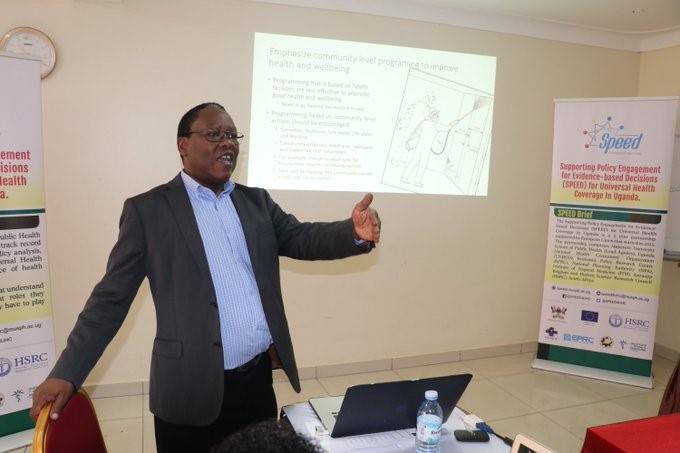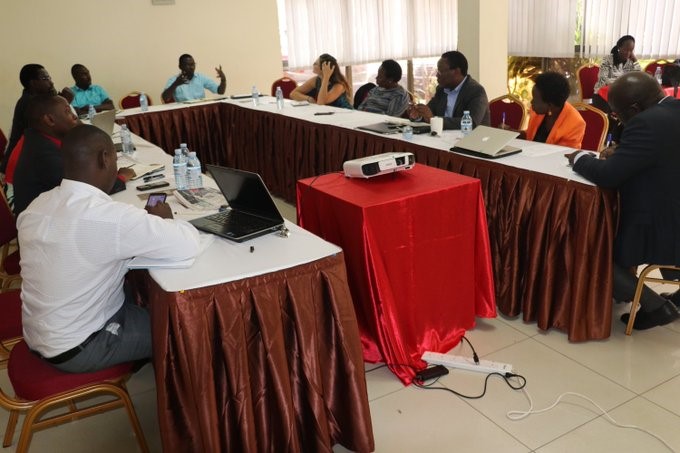
(Prof. Freddie Ssengooba, from Makerere University School of Public Health, Director SPEED project making a presentation on Community Health Systems.)
On 31 July 2019, Makerere University School of Public Health (MakSPH) organised a workshop centred on Community Health Systems in Uganda. The workshop was organized by the SPEED Project that is housed at MakSPH.
Presenting on Community Health Systems and Universal Health Coverage (UHC) at Piato Restaurant, Prof Freddie Ssengooba from MakSPH said the current health system in Uganda is designed to respond to epidemics rather preventing them.
"We need to build a system of social protection in which Community Health Workers (CHWs) help control diseases,” said Prof. Ssengooba
Citing a historical initiative in Buganda called "bulungi bwansi" literary meaning “for the good of society”, Prof. Ssengooba emphasized the role of local leadership as an effective avenue in promoting Community Health. In her presentation entitled "Multi-Country Costing of Community Health", Dr. Elizabeth Ekirapa Kiracho, the Chair- Department of Health Policy Planning and Management at MakSPH, pointed out three key areas of facilitation, supervision and training as a very important component when promoting Community Health. "Many people who get involved in community health work have passion, what they need is equipment, refresher training and information on how to handle community Health " noted Dr Ekirapa.
Way Forward
On the way forward, Prof. Sengooba stressed a multi-cultural approach as a way of promoting good health and wellbeing to prevent diseases. He explained; “We need to orient ourselves by bringing different people on board to understand health concepts if we are to yield results, we need implementers, academia and many more. It's starting point is having an interactive discussion with everyone to understand community health," added Prof Ssengooba.
Present at the high-level discussion was the Commissioner in Charge of Health Promotion at the Health Ministry, Dr. Richard Kabanda. He stressed the need to involve different realms of leadership right from district level to religious and cultural leaders, to promote community.
SPEED is a consortium of five partners led by the Makerere University School of Public Health (MakSPH) in Uganda, in partnership with the Economic Policy Research Centre( EPRC), National Planning Authority(NPA), Uganda National Health Consumer’s Organisation (UNHCO),Institute of Tropical Medicine of Antwerp, Belgium, and the Human Science Research Council in South Africa. The project endeavours to strengthen capacity for policy analysis, advice and influence at MakSPH and partner institutions and contribute to accelerating progress towards universal health coverage and health systems resilience in Uganda.
Written by Joseph Odoi


